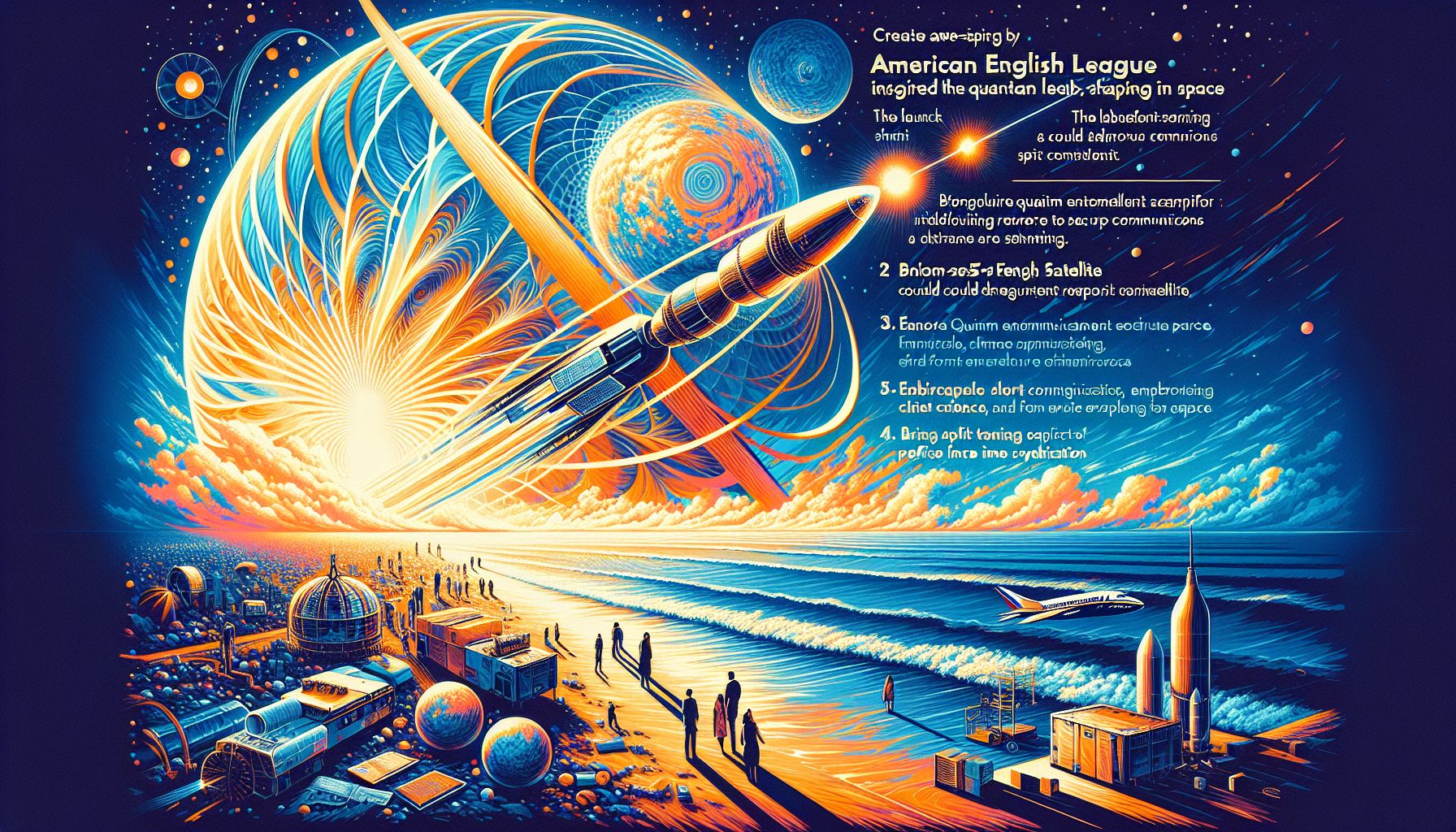Boeing's Quantum Leap: Satellite to Test Space-Based Internet in 2026

Netherlands, Wednesday, 18 September 2024.
Boeing plans to launch Q4S, a groundbreaking satellite, in 2026 to demonstrate quantum entanglement swapping in space. This technology could pave the way for a global quantum internet, revolutionizing secure communications and enhancing applications in climate science and precise time synchronization.
Introduction
Boeing plans to launch Q4S, a groundbreaking satellite, in 2026 to demonstrate quantum entanglement swapping in space. This technology could pave the way for a global quantum internet, revolutionizing secure communications and enhancing applications in climate science and precise time synchronization.
The Role of Quantum Communication
Quantum communication relies on the principles of quantum mechanics, specifically entanglement, to transfer information between particles without physical movement. This method, known as quantum teleportation, allows the quantum state of a particle to be transferred over vast distances. Entanglement swapping, a crucial aspect of this process, enables the creation of scalable quantum networks by linking particles that have never interacted directly.
Why Space-Based Networks?
Traditional ground-based quantum networks are limited in range due to transmission losses in fiber-optic cables, which become significant over distances of a few hundred kilometers. Space-based networks, utilizing satellites, offer a solution to this limitation by providing free-space optical channels with far lower transmission losses. This makes them ideal for establishing global quantum connectivity.
The Q4S Mission
The Q4S satellite, developed by Boeing in collaboration with HRL Laboratories, aims to demonstrate the practical application of entanglement swapping in space. Scheduled for launch in 2026, this mission will involve two entangled-photon pair sources within a space vehicle, designed to maintain quantum states despite environmental challenges like temperature and radiation. The mission will utilize the Corvus platform from Astro Digital, which will begin production in 2025.
Potential Applications and Benefits
Quantum networks have the potential to revolutionize a wide range of industries, including secure communications, climate science, navigation, and agriculture. Quantum sensors, which are more precise than current instruments, can provide highly accurate measurements, while quantum computers can process vast amounts of data more efficiently than traditional computers. The successful demonstration of the Q4S mission could lead to the development of a secure global quantum internet, enhancing data security and operational efficiency across multiple sectors.
Collaborations and Future Prospects
Boeing is not alone in its quest to advance quantum technology. Other organizations, such as the Netherlands-based TNO and Airbus Central Research and Technology, are also exploring the potential of space-based quantum networks. The Quantum Internet Alliance’s Special Interest Group on Space is another key player in this field, fostering collaboration among global experts. As these initiatives progress, they will contribute to a robust framework for a global quantum internet, setting the stage for transformative technological advancements.

